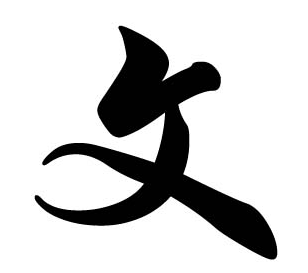241 episodes
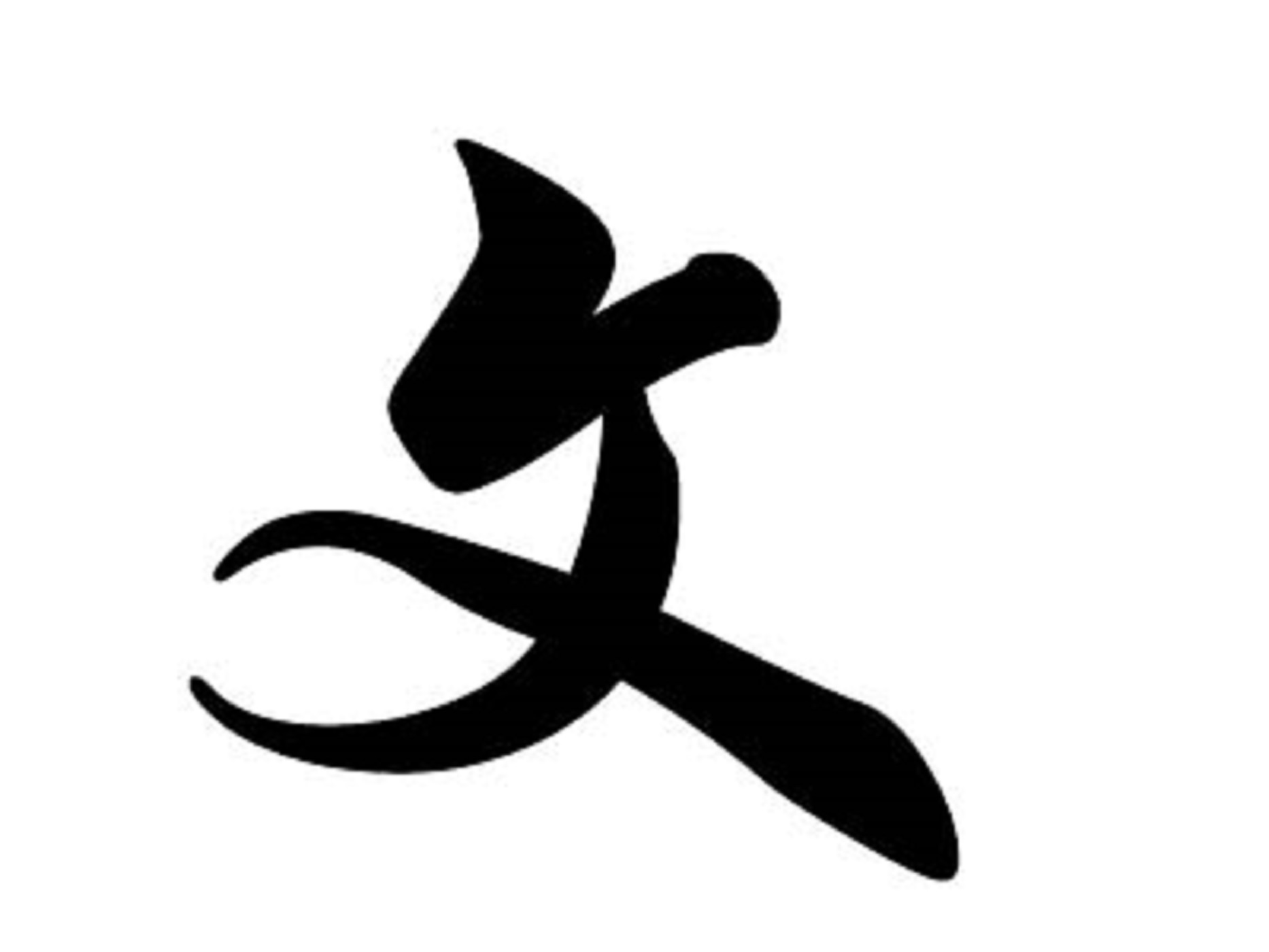

Today, the podcast gets to Wang Wei and a Buddhist poem he wrote with the eye of a painter. Wang Wei is the least popular of the three High Tang poets, at least, since the Song Dynasty, but, back in the day, he was the most popular, more popular than Li Bai and Du Fu. We'll travel to his empty mountain and see if we aren't too disturbed by women doing the laundry to learn a bit about Chinese poetry. LIVING IN THE MOUNTAINS ON THE CUSP OF FALL Empty mountain after a new rain, The air is late, fall is coming The bright moon shines amid the pines, the clear stream's water flows over a rock. Hubbub in the bamboo, the washing lady returning the fishing boat pushing through lotuses. And then it happens that the flowers of spring die, Me, a hermit, I can hang here for a while. 山居秋暝 空山新雨後,天氣晚來秋。 明月松間照,清泉石上流。 竹喧歸浣女,蓮動下漁舟。 隨意春芳歇,王孫自可留。
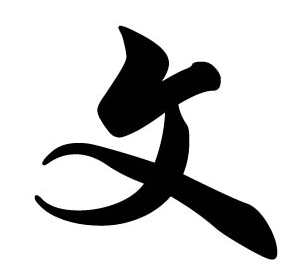

Today, Lee gets to chat with Susan Wan Dolling, Hong-Kong-American poet, novelist and translator. She recently published her latest book of Song poetry translations, What the Cuckoo Said, but she has long been working on translating Chinese poetry into an English that does what is hard to do, that preserves the music that you hear in the Chinese original. If you want to check out more of her translations, check out Hundred Tongues (volume 1 of her Song poetry translations), Superstars (volume 1 of her My China in Tang Poetry series), Floating on Clouds (volume 2 of her My China in Tang Poetry series) and Friends and Lovers (volume 3 of her My China in Tang Poetry series). Also, my book, is out! You can purchase a copy of it here from my publisher: https://unsungvoicesbooks.square.site/product/china-s-backstory-the-history-beijing-doesn-t-want-you-to-read-preorder/BXJSID5U6P4RVONS7V4HSZSH Or you can purchase it on Amazon here. If you are interested, check out the nice things smart people have said about the book here.
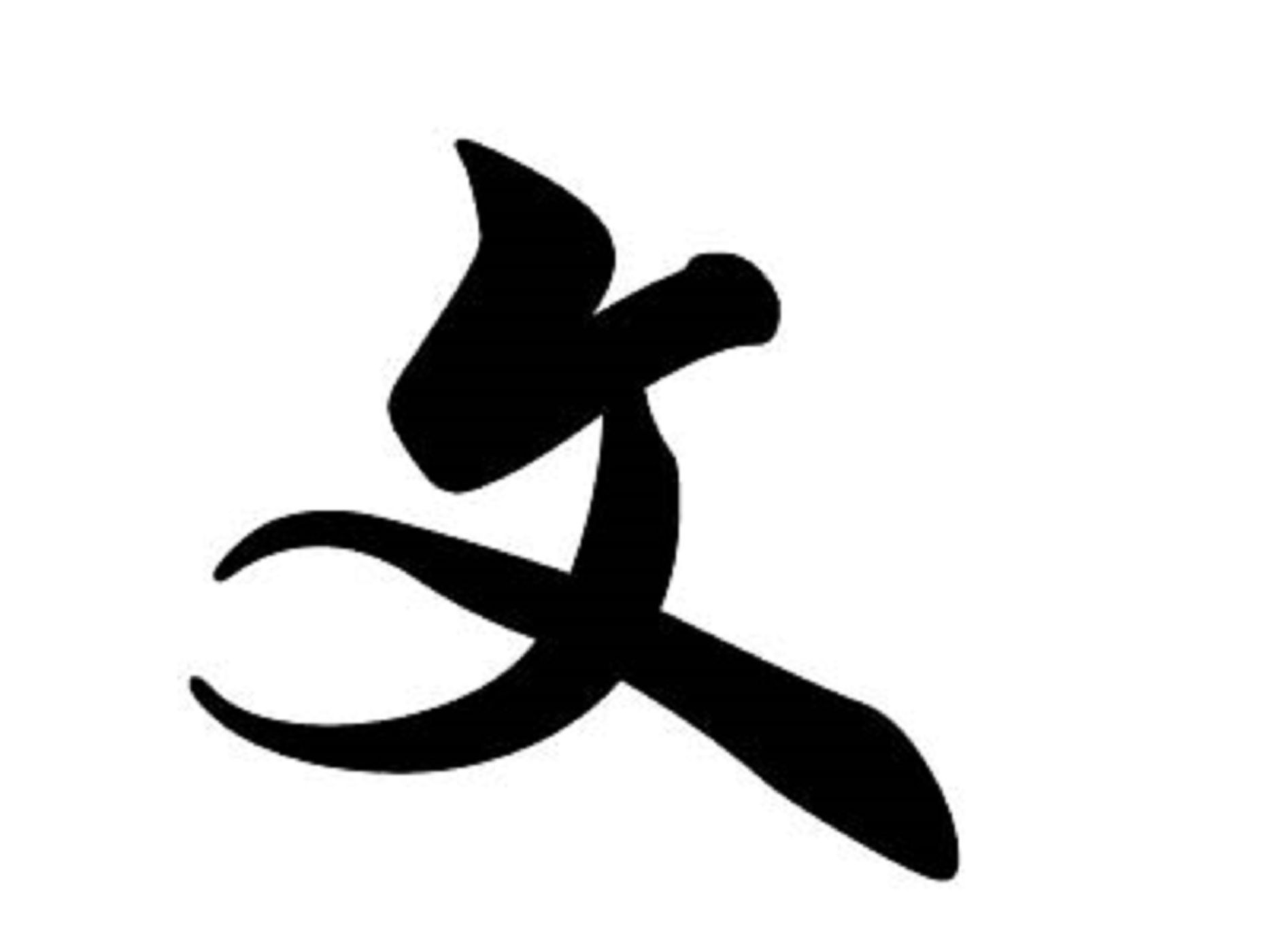

On this episode, I give a brief update on the book's status, which should be in your hands by mid-November. And also, Rob returns, joining the podcast from France to talk about what he has been up to and also to chat with Lee about the book.
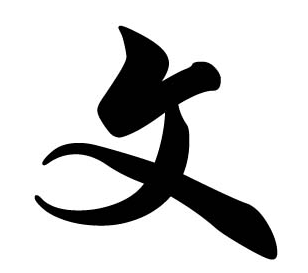

Today, I get to speak with Professor Emily Mokros about her fascinating book, . The book is about a media outlet in the Qing Dynasty that published discussions that the emperor held with his bureaucrats.
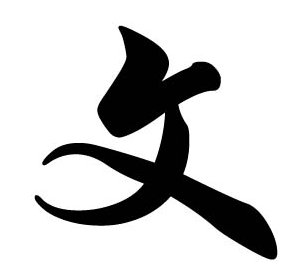

This episode, the podcast takes a look at a poem Mao Zedong wrote in February 1936, after he and his party had undergone the near-death experience of the Long March. Yet still, Mao has the gumption to imply in the poem that he would be the greatest ruler China had ever seen. My Translation of the Poem: Spring in a Soaked Garden - Snow The north country scenery, frozen over for a thousand miles, snow floating for ten thousand miles. I look inside and outside the Great Wall of China, all that remains is boundlessness. Up and down the Yellow River, it has suddenly lost its surging vigor. The mountains dance like silver snakes, the plains gallop like white elephants, I want to compete with Heaven and see which of us is taller. I must wait for a clear day, and look at the snowy landscape wrapped in red and white, it’s really bewitching. The rivers and mountains, this land, is so pretty, it has brought out countless heroes to compete and serve the nation. Pity Qin Shihuang, the first Chinese emperor, and Han Wudi, the greatest Han emperor, their writing ability ain’t all that good. Tang Taizong, the greatest Tang emperor, and Song Taizu, the greatest Song emperor, they kinda lack style. Those northern barbarian rulers, like Genghis Khan, all they knew how to do was shoot arrows at big eagles. Those guys are all dead, if you want to count the true badasses look to today. ORIGINAL POEM: 沁园春·雪 北国风光,千里冰封,万里雪飘。望长城内外,惟余莽莽;大河上下,顿失滔滔。山舞银蛇,原驰蜡象,欲与天公试比高。须晴日,看红装素裹,分外妖娆。 江山如此多娇,引无数英雄竞折腰。惜秦皇汉武,略输文采;唐宗宋祖,稍逊风骚。一代天骄,成吉思汗,只识弯弓射大雕。俱往矣,数风流人物,还看今朝。
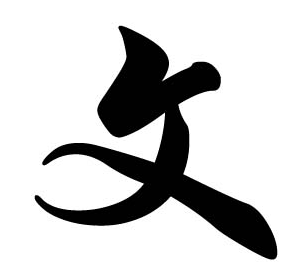

This episode is a special one. The podcast has a conversation with Fox Butterfield, the first correspondent for the New York Times after 1949. Mr. Butterfield set up the Beijing Bureau for the New York Times in 1979 and was the bureau chief from 1979 to 1981. Mr. Butterfield started studying Chinese in 1958, and was a student of John Fairbank. In this episode, I got the priveldge of interviewing Mr. Butterfield at his home. We talked about his experience with John Fairbank, his friendship with Senators John McCain and Joe Biden, his work on the Pentagon Papers and many other topics.
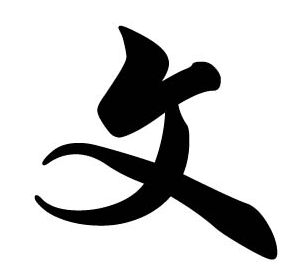

In today's episode, we look at a work that tackles the controversial topics of aborition and the One-Child Policy. Today's story, by Nobel-Prize Laureate Mo Yan, watches a father/government official after his wife becomes pregnant with a son. Their first child, a daughter, is not good enough for the official's dad, he wants a son. But the official is tasked with enforcing the One-Child Policy, China's draconian rule that each family was only allowed to have one child. We watch as the official forces his wife to get an abortion while explosions happen all around them.
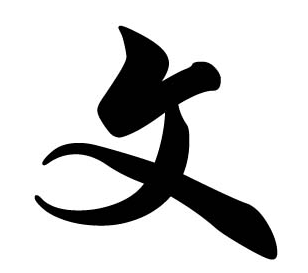

"Folding Beijing" is one of the most talked-about science fiction stories to come out of China since Liu Cixin, Hao Jingfang's story is about a Beijing divided into three parts. First Space is for the rich, Second Space is for the middle class and Third Space is for the poor, who clean up after First and Second Space Beijing. The three spaces never exist simultaneously, but rather when First Space is open, Second and Third Space are folded up and put away. A man, struggling to put his daughter through school, agrees to take up an illegal job to smuggle a message from Second to First Space. This is a story that is fascinating because it is all about class, even though China has been run by the CCP for almost a century. Join the podcast as we get folded into Third Space and find ourselves in a new world.
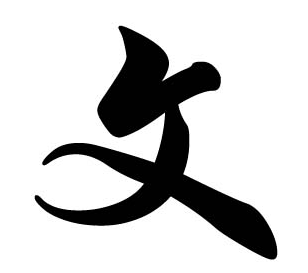

Today, we are looking at a story involving Su Dongpo, who was the butt of the greatest fart joke in all of Chinese history. The story involves Su Dongpo, the Song Dynasty's greatest poet, and a Zen Buddhist named Buddha's Stamp.


Lock up your daughters and watch your wallet. In this episode, we are going to take a look at stories from the late Ming's most famous grift manual, a book by Zhang Yingyu. For this episode, the translators, Bruce Rusk and Christopher Rea https://asia.ubc.ca/profile/christopher-rea/ have kindly agreed to come on talk about this text without stealing anything. I highly recommend this book to anyone looking to make counterfeit silver, run a gang of that blinds and amputates children or just to anyone looking for some damn good stories. Purchase the book here, at Columbia University Press.


Today, we have an interview Joel Bigman, the author of . is a continuation novel of (西遊記). In this journey to the West, Tang monk travels ever farther to the west, all the way to modern day Israel. Bigman has written his novel with some of the same characters that you know and love, Tang Monk, Monkey and Pigsy, but he also has some new characters like Bear (the Second Samson). This new team travels through the Holy Lands, encountering Jewish monsters and some other characters. If you are interested in buying his great novel, check out these book sellers: * https://www.amazon.com/Second-Journey-Joel-Bigman/dp/9888843702 * * The Second Journey eBook by Joel Bigman - EPUB | Rakuten Kobo United States * * The Second Journey by Joel Bigman, Paperback | Barnes & Noble®


It is that time of year again, the time when the Chinese Literature Podcast takes stock of the year and what has happened. In this podcast, Lee talks about his book and also about teaching Chinese Literature at the University of Oregon.


Today, we have an exciting and disturbing episode about Taiwan and prostitution. This is Number 6 in my series on Taiwanese literature, and the second episode on Huang Chunming, Taiwan's most famous nativist author. Last episode, the podcast looked at the story, "Drowning of an Old Cat." This week we look at a story from that same English translation. "Sayonara, Zaijian" is a story about a Taiwanese man forced to pimp out his own countrywomen to the Japanese. It is fun, it is disturbing, it is triggering. In other words, it is a great work of literature.


Today, we take a look at Huang Chunming, one of the most important writers in Taiwan's nativist movement. He is an author who developed this sense of a Taiwanese identity in his work. Also, don't worry, no cats die in this story.


Today, Lee is talking with Professor Daniel Bell, most recently the author of , but also the author of the famous Professor Bell and Lee chat about his book and about his wider experience of Chinese culture and philosophy while serving as the first foreign dean of a university in the PRC.


Today, the podcast does something different. In this episode, we are looking at a film. And not just any film. It is perhaps the greatest film ever made. or is the magmum opus of Edward Yang, the Taiwanese filmmaker. We are going to explore the symbolism of balloons, sticks and condems in this amazing film.


The greatest of Taiwan's modernists, Bai Xianyong's short story, "Winter Nights," is a tale about history and how little we are able to change things. These revolutionaries of Beijing's hot summer of 1919 reconvene in Taipei in the 1960's having lost their cause and their country. Lee taught this story about protestors during the height of the pro-Palestinian protests in 2024, and he describes how his students reacted to the story.


This episode is different. I am first explaining the issue of Taiwanese comfort women, and then letting yall hear a speech that I gave to a group in Vienna on the only comfort women museum in Taiwan. Stick around for some interesting history and a discussion of museums.


This week's podcast is on one of the earliest documents we have in Taiwanese history, a 1697 journey by Yu Yonghe into the wilds of Taiwan's north, where he mined sulfur amongst the barbarians. Yu gets off on traveling, and this journey is deep into the heart of Taiwan. In this podcast, I discuss the history of Taiwan along with questions of race and racism in Chinese thought.


Love and amplifers is the topic of Ge Fei's novella "The Invisibility Cloak." Ge Fei uses a discussion of stereo systems to try to articulate changes in value system in China in the late 20th century. Turn up the volume for this exploration of one of contemporary China's most acclaimed novelists.


Today, the podcast interviews one of contemporary Chinese literature's extraordinary translators. Nicky Harman translated, along with her partner in crime, Liu Jun, Jia Pingwa's recent novel . Nicky is well known in Chinese literature circles as a translator and promoter of Chinese literature to the broader public. The novel, Sojourn Teashop, is available here, published by an excellent UK-publisher focused on Chinese literature, Sinoist https://sinoistbooks.com/, which is at the forefront of translating and publishing the best of contemporary Chinese fiction.


In today's episode, the podcast is honored to have Ian Johnson, Pulitzer-prize winning journalist, author and commentator who has spent decades living in and writing about China. His most recent book is called In it, he follows a handful of China's underground historians who resist the increasingly heavy-handed state by writing and researching events that the Chinese Communist Party would rather be forgotten.


Last episode, we discussed Jin Yong and his contributions to Kung Fu literature. This episode we take a look at his final work, the "Sword of the Yue Maiden." We encounter some ancient Chinese punks with swords and how their killing of a little girl's goat ends up percipitating their demise.


This podcast, we take a look at the life and times of Jin Yong, along with the genre he came to define, modern kung fu literature. We explore Jin Yong's path to becoming China's best selling writer, putting out more books than JK Rowling. We also look at the January 17th, 1954 kung fu match that inspired him and others to turn kung fu into a phenomenon that would over take the world decades later.


This week is the last in our Sima Qian series, but it is also definitely the best. We look at how Sima Qian lost his testicles while sticking to his principles. We consider the conflict between him and Emperor Wu that percipitated his castration. I also make a big announcement. Here is the Transcript: My name is Lee Moore, and this is the Chinese literature podcast. We are coming to the end of our Summa Chen series. Last week, we looked at Summa Chen's discussion of the capitalists, Summa Chen's defense of free market principles. This week, we are looking at one of the most famous Summa Chen works. And strangely, it might not even have been by Sima Qian himself. This week we are talking about the famous Bao Ren An Shu, the letter replying to Ren An, the letter to Ren An as it's sometimes translated. First we're going to discuss the controversy surrounding the letter and the context in which it was produced, and then we're going to dive into the letter itself. So what's the controversy? There's actually a debate as to whether or not Sima Qian wrote the letter. The letter to Renan, despite the fact that This is the work that Sima Qian is most known for. It doesn't appear in the shi ji, the records of the historian. The records of the historian is Sima Qian's main work. Why doesn't the letter of Ren'an appear in that work? We don't really know. Instead, it appears in the Han shu, the history of the Han, the book of the Han. The Han shu, is a work that appears almost two centuries after Sima Qian's death. Now, the letter to Renan appears in that work and it purports to be by Sima Qian. Did Sima Qian actually write this letter? It's hard to say. There's a book written by Li Weiyi, Michael Nylan, Han Venice, and Stephen Durant. They're all stunningly good. Scholars, professor Durant's a friend of the podcast has appeared on the podcast way back in April 17. They argue that this letter might actually be written by someone else, but they think it's pretty much true to Sima Qian. I don't understand what that means if The letter is written by someone else, but true to him, I don't, I don't know. That's a circle that I can't square, but that's fine. I just wanted to talk a little bit about that controversy. Is this letter by Sima Qian? We don't know. Does it matter? Probably not, because for two millennia, it's Chinese readers have been reading this letter and whether or not it was truly written by the real historical Sima Qian, it has become associated with the character of Sima Qian in the minds of so many Chinese readers. Okay. Enough on the controversy. Let's dive in to the circumstances surrounding this letter. Renan was supposedly a friend of Sima Qian. Renan is involved in a rebellion in 91 BC called the Liuzhou Rebellion. Renan is facing execution because he supposedly did not. display sufficient loyalty to the emperor during this rebellion. Ren An writes a letter to Sima Qian explaining what happened. Ren An doesn't think his execution is justifiable. Sima Qian replies to Ren An's letter. Sima Qian essentially tells Ren An to suck it up, deal with it. And then he, it is this long disquisition. By so much in explaining what happened to so much in himself and how he dealt with the prospect of almost being executed by the emperor and how in the end so much in lost his testicles though not his life. Let's jump back in time a bit. So much in served Emperor Wu of the Han dynasty, Han Mu Di. Emperor Wu is very controversial. He institutes this new economic policy, something that we talked about in the last podcast. Emperor Wu also breaks with other traditions. So for about quite the past century, the Han dynasty largely kept the northern barbarians, that is the Xiongnu, in check. And they had done this with a pretty simple diplomatic formula. They paid them and they married the, uh, Han Dynasty princesses off to the Xiongnu as a way to make sure the Xiongnu had skin in the game and knew that if they raided Han towns along the borderlands, they were going to get cut off from the stuff. Essentially, the Han Dynasty was selling them goods and trying to get them addicted to the kinds of industrial goods that only a society like China could produce. And once they got used to these Industrial goods these luxuries they wouldn't attack the Han because they knew that they could get cut off and they constructed this whole sexual dependency as well They the Han Dynasty argued that Chinese women were more beautiful than these barbarian women And you can't get more beautiful Chinese women, unless you work with us, we'll send you Han dynasty princesses. If you don't attack our villages and we'll cut you off. If you do attack our, our towns on the borderlands, Emperor Wu stops all that. He is very frequently warring with the Xiongnu, those Northern barbarians. Emperor Wu says. We ain't going to pay the Xiongnu any more money for peace, and we ain't going to give them any more princesses. It's an incredibly expensive policy change. It's also something that Sima Qian promptly criticizes in his, uh, Xiongnu Liezhuan, the biography of the Xiongnu, where Sima Qian seems remarkably sympathetic to the Xiongnu's side, considering that his job, Sima Qian's job, is the archivist of Emperor Wu. Sima Qian goes out on a limb there and really expresses Uh, a lot of sympathy for the Xiongnu. Emperor Wu and Sima Qian have these philosophical differences. Sima Qian does not like Emperor Wu's economic policy. Sima Qian does not like how Emperor Wu deals with the Xiongnu. There are other things that go on. Then this thing happens. During one of the wars with the Xiongnu, a guy named Li Ling. Goes and shoots his mouth off. General Li Ling says he can destroy the Xiongnu with just a handful of troops. Initially, Emperor Wu is skeptical. He thinks General Li Ling is just talking trash, but Emperor Wu eventually gives General Li Ling his troops. General Li Ling marches on the Xiongnu. He meets the main body of the Xiongnu troops somewhere in the Altai mountains, in that region where modern Russia, Kazakhstan, Xinjiang, and Mongolia all come together. General Li Ling is now regretting mouthing off. He's surrounded by a much larger group of Xiongnu troops. General Li Ling and his troops fight bravely. In this passage, I'm going to read, Li Ling's forces are surrounded. They're running out of supplies. An officer from Li Ling's army is insulted. He defects to the Xiongnu and tells The Xiongnu, that Li Ling's troops are running low on arrows, so of course the Xiongnu push it harder. Li Ling's forces are in a bad way. The relief column did not come. The dead and wounded troops lay in piles. Nevertheless, Li Ling gave a shout to cheer up his army, and not a soldier failed to rise. He was crying, swallowing, tears running down his bloody face. Here is a translation. From here's my translation from the passage that I'm drawing from an entire country surrounded them for thousands of miles They had to turn and fight turn and fight their arrows exhausted the roads of escape Used up the backup soldiers. They had requested had not arrived the dead and the wounded soldiers Piled up, but Li Ling shouted to his army, and every soldier rose. Li Ling personally shed tears, and with his face bleeding, he drank his own tears. They drew back their empty crossbows, risking everything before the bright swords. Facing north, they fought. To the death with the enemy emperor Wu was incredibly pissed You've got to imagine general li ling had been running his mouth for all this time and he ends up surrendering emperor Wu was angry And then sima qian comes back into the story. Sima qian had kind of known li ling They hadn't had a beer together despite the fact that sima qian was not very close with li ling. He still defends him He says li ling is a good guy. He says that li ling and I we lived in the palace together I knew li ling Even if we were never good friends. Sima Qian tries to argue that Li Ling was a brave man. Emperor Wu takes out his anger at Li Ling on Sima Qian. He orders that Sima Qian be executed. But then, Emperor Wu rethinks what he has done. He grows a little bit less angry and he actually commutes Sima Qian's death. sentence. The punishment that he gives him is the lesser punishment of castration. Now, you got to understand, this is the Han Dynasty. In the Han Dynasty, no self respecting man would live castrated. In the Han Dynasty, they thought that it was better to die than to be unmanned. So, when Emperor Wu commutes that punishment from execution to castration, He's not expecting Sima Qian to live on. Instead, he's giving him an out. Emperor Wu is allowing Sima Qian to commit suicide through means of his own choosing. He can choose a less gruesome death than the kind that he would have faced if he was executed. But the expectation is still that this punishment will result in Sima Qian's death, even if it's by suicide rather than an out. execution. According to the letter to Renan, Sima Qian makes a strange decision. Rather than commit suicide, he allows himself to be castrated. This is difficult to imagine. Why would he do this? He asks himself this question in the letter. How could he go on living without his manhood? To have lost your manhood To have lost your testicles in the Han Dynasty is to really not be a human. That's how Sima Qian describes it. Sima Qian, in the letter to Renan, calls himself, quote, the leftovers of the knife and the saw. Here's what he says in another passage. I may be an old horse that has outlived its usefulness, but I always hearken to the influence from my seniors. When I consider how my body has been mutilated, how fault has been found in whatever I have done, and how my desire to be of good benefit has brought ruin to me. Instead, my heart burst and I have no one to tell. In another passage, Sima Qian says, quote, there is no degradation worse than castration end quote. Then Sima Qian goes on to list examples of how people have been ashamed of having just been around castrados in the Chinese past. He mentions Duke Ling of Wei. Duke Ling shares a carriage with a eunuch. How does Confucius. respond when Duke Ling does this. Confucius actually leaves the duke. He does not even want to be around this man who has ridden in a car with a castrato. He goes through all these examples and then he ends this list of people who have been shamed by being associated with castratos. Sima Qian says this, when a man of even middling qualities has business to conduct with a unit, he always feels So, if castration is so horrible, why does Sima Qian accept that fate rather than just facing death? The reason Sima Qian says he does it is because fame is more important than anything else. Quote, the end of all action is becoming famous. The end of all action is making one's name known. I'm talking about this passage with my students in a few weeks, and I wonder, in an age of TikTok and Instagram, how they are going to respond to this passage. For Sima Qian, the question of shame, of death, those things are less important than fame. And the reason Sima Qian has to, has to stay alive, he says it's because he has to complete his father's work. He has to finish up this history that he is writing, the records of the historian. Interestingly, initially Sima Qian frames this in very filial terms, as a good Confucian. Initially, Sima Qian doesn't say, I did it because I wanted to finish that historical work that I was working on. He does that later on. Here's the passage where he actually admits that the reason he's doing it is because he personally has this investment in this historical work. Quote, the reason I bore through it in silence and chose to live At any cost, the reason I did not refuse to be covered in muck was because I could not stand to leave something of personal importance to me unfinished, because I despised perishing without letting the glory of my writings be shown to posterity. In the end, it comes out, I wanted to do it because this is my history, and this is the thing that will live on down the generation. In the end, Sima It is only the act of writing that can save him from a fate of insignificance. Quote, in the cases like Zuo Qiu Ming's sightlessness or Sun Zi's amputated feet, these men could never be employed. They withdrew and put their deliberations into writing in order to give full expression to their outrage, intending to reveal themselves purely through writing that would last into the future. In the last podcast, I talked about how Sima Qian's writings function as a way to attack Emperor Wu and his economic policies. This is where I was getting that from. Those of us who aren't kings, those of us who aren't emperors, all we can do when a ruler does something wrong and tosses us out, having us castrated or amputated for punishment, our only power left is the pen. Sima Qian sums it all up when he talks about death. There are lots of people who are rich and famous in the past, Sima Qian says, but most of them have been forgotten. Quote, the number of rich and noble men in ancient times whose names have been utterly wiped away is beyond reckoning. The only ones who are known are the exceptional one. Those who are outside of the norm. This is why Sima Qian decided to continue. This is why he decided to face the humiliating fate of being castrated. He says, Death comes for us all. Do not ask for whom the bell tolls. It tolls for thee. It is not the fact that we die that matters. It is the way that we handle death. death that matters most. Here's what Sima Qian says, quote, Human beings truly have but one death. There are deaths that seem heavier than Mount Tai, but to some, death seems lighter than a piece of swan's down. The only Difference lies in what is done by die. It is only in the way that we die, that the meaning of our life works itself out. Chen's life has meaning because he chose to live in humiliation and complete his master work, rather than do the easy and expected thing and simply commit suicide. Chen chose to face a more humiliating fate and put a dent in the universe that I think is one of the most. Amazing passages in all of Sima Qian's work if we really believe that this is by Sima Qian Which of course I already pointed out. We don't we don't really know. Okay, y'all can see how incredible this piece is It's one of the greatest and most famous pieces of writing ever produced in China If you talk about this with a Chinese friend, they're gonna know about it They all had to read it in school. Today's Chengyu is To take history as a mirror or to look at oneself through history, to learn from history. This is the dominant mode of history in China. History is understood in China, first and foremost, as a moral lesson. It's a means for understanding the present. In China, history is more literary than in the contemporary Western world. In the West, we think of history and we expect it to be what happened. In the past, we expect it to be objective. We don't always expect it to have a moral message. Though, of course, history frequently does have a moral message in the West. For most modern Westerners, post Renaissance, history is about what happened in the West. In the past, but in China, there is still an expectation that history is ideological, that it has a moral point that it is trying to impart to the reader to take history as a mirror. This is a very famous Cheng Yu. It's originally written in the book of documents, the Shang Shu, but it's used throughout Chinese history. Now, before we go, I have a big announcement to make on the podcast. Previously mentioned that I was working on publishing a book. It is happening. I'm proud to announce that I am going to be the first author getting to be published by this awesome new publisher unsung voices books run by amy rath and don russo The two of them have a combined five decades in the publishing industry and they chose me as their first book Don has been a listener to the podcast for a while. The book itself is tentatively titled China's backstory, the literature and history behind today's front page, China news. The book tries to explain the literature and history behind for China related topics that are being discussed in the American media today, Xinjiang, Hong Kong, Taiwan, and the Chinese economy. These are all incredibly sensitive topics. This is the kind of book that couldn't get me castrated by Xi Jinping. All of these topics will make the authorities in Beijing want to reach for the knife and the saw in the book. I'm going to explain how those news stories came to be. News stories, taking the reader. To the stories behind the news story, weaving literature and history into a narrative that helps people understand the background behind these topics, the things that are rarely reported on the history, the literature behind the story. What I ask of you. If you're willing, dear podcast listener, I have posted the URL for the book's preorder page on the website. I would be very appreciative if you would go and show your love for me, the podcast, and the work I do, if you just go there and sign up for the preorder. So to preorder, you're not actually preordering in the sense that There is no credit card information required. You don't have to pay anything in order to pre order. All you have to do is give Unsung Voices Books your email address. What you're really doing when you pre order is you're signing up to be updated about my book as it gets closer and closer to being published, which I think will probably be in 2025. Unsung Voices Books Is asking me to turn in the manuscript August 31st. So I have been beavering away at the book. Some of y'all probably realized that something was up because I have been even slower than normal in replying to emails. If you are willing to support me, go to Chinese literature, podcast. com. Find the page that says, Pre order my book, put in your email address and then go tell your family, tell your friends, even tell your enemies, spread the word that this book is happening. Okay. That's it for me. You're going to hear me in later episodes talking about the book. Again, I'll keep you all updated on the status of the book as well. I really appreciate it. If you can go and pre order the book until the next episode, I'm Lee Moore, and this is the Chinese literature podcast.


Today, we take a look at Sima Qian's Biography of the Capitalists, chapter 129 in the . This chapter is Sima Qian's two-millennia old defense of free market capitalism. The chapter is one of the most interesting his oeuvre because Sima Qian was condemned for it by later historians.


Today, in the second podcast in the Sima Qian series, we take a look at some of the first literary evidence we have for the Nan Yue, the People of the Southern Yue, the ancestors to modern-day the provinces of Guangdong and Guangxi in China and the people of Vietnam. Sima Qian describes the Han Dynasty's colonial conquest of the Yue in vivid detail.


Sima Qian is not only the first historian in Chinese history, he is also one of the greatest writers that China has ever produced. Today, writers of Kung Fu novels point to Sima Qian's stories on fighters and assassins as the origins of the Kung Fu genre. Chinese business people point to his "Biography of the Capitalists" as the reason why Chinese people today are so good at business. He documents the Chinese colonization of the Yue, who once were an independent nation that straddled the border from Guangzhou to Hanoi. Today is the start of a series on Sima Qian. The podcast will take a look at Sima Qian the man and the broader context of China's early historiography.


Today, we do something different. We take a look at a children's book that was originally written in English, and then translated into Chinese. Strangely, the translation into Chinese was done in a way that took the English and translated it into classical poetic forms that hark back to the Tang Dynasty. Journey with me to find out how deeply Chinese poetry has influenced the Chinese today.
